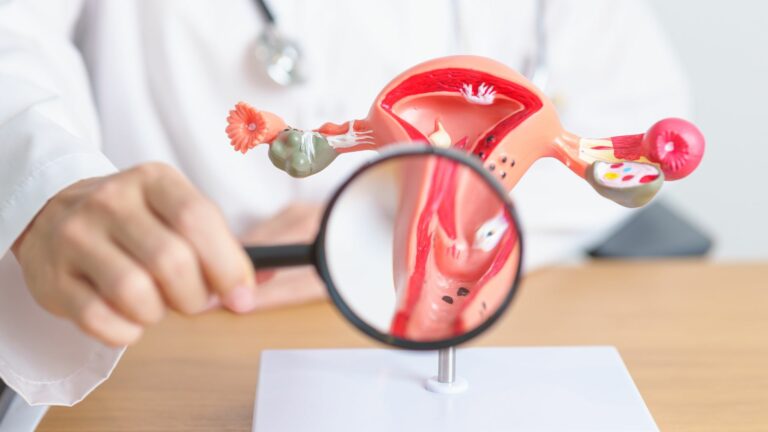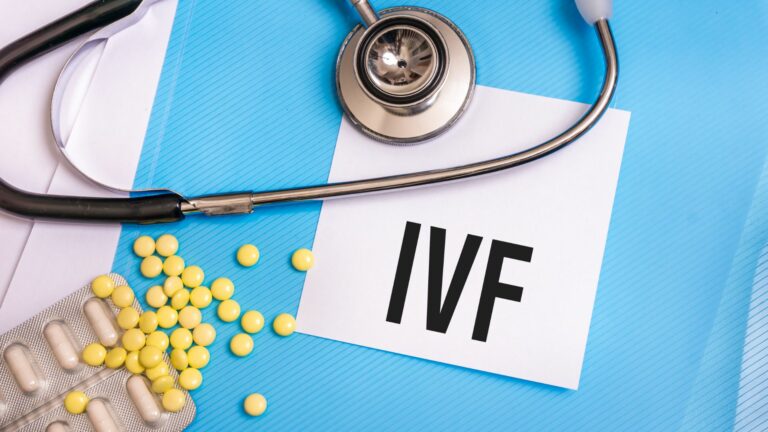
Can I pursue IVF as a single woman/LGBTQ+ couple in India? What are the specific regulations I should know about?
While the current legal framework (Assisted Reproductive Technology Act, 2021) has some ambiguity, here’s what you need to know:
- IVF is permitted for heterosexual married couples, and women between 23 and 50 years old.
- Single women may be able to access IVF under specific medical circumstances.
- Surrogacy is restricted to heterosexual married couples. There’s limited clarity on its availability to LGBTQ+ couples.
Important: It’s best to consult with a fertility specialist and a lawyer specializing in reproductive rights for the most up-to-date and personalized advice. Consider exploring options at IVF centers in Chennai or IVF centers in Kolkata.
What IVF medication protocols are most successful for women with PCOS in India?
There’s no single “best” protocol, but here’s what’s commonly considered:
- Antagonist Protocol: Often preferred to prevent ovarian hyperstimulation syndrome (OHSS), a risk for women with PCOS.
- Short Protocol: May be used to reduce medication cost and duration of treatment.
- Individualization is Key: Your doctor will select a protocol based on your specific hormone levels, ovarian reserve, and prior response to medications.
Consult with specialists at IVF centers in Surat or IVF centers in Pune for personalized guidance.
How can I navigate family expectations about IVF in India while respecting my own needs?
This can be challenging, but focus on:
- Open Communication: Talk to your partner (if you have one) about how you’ll handle family conversations together.
- Setting Boundaries: Decide what you’re comfortable sharing and what’s private. Practice saying things like, “We appreciate your concern, but we’d rather keep some things private during this process.”
- Focus on Your Well-being: Don’t feel pressured to make decisions based solely on family expectations. Prioritize your emotional and physical health.
Consider seeking support from counselors at IVF centers in Jaipur or IVF centers in Lucknow.
Are there ways to find clinics with shorter IVF waiting periods in my region?
Yes! Here are some strategies:
- Smaller Clinics: They may have shorter wait times compared to larger, well-known centers.
- Newer Clinics: Clinics building their clientele might have greater availability.
- Direct Inquiry: Contact clinics directly and ask about their current waiting times. Some may keep waiting lists.
- Online Resources: Look for fertility forums or resources specific to your region, such as IVF centers in Mumbai, IVF centers in Delhi, IVF centers in Kanpur, or IVF centers in Nagpur, where people discuss clinic wait times.
What are some lesser-known tips for managing IVF injection pain (besides icing or numbing)?
Here are some tips to try:
- Distraction: Watch a funny video or listen to music during the injection.
- Warmth: Apply a warm compress to the injection site afterward to soothe soreness.
- Relaxation Techniques: Practice deep breathing or visualization exercises to reduce anxiety and muscle tension.
Professionals at IVF centers in Indore or IVF centers in Thane can provide additional guidance on managing discomfort.
How can my partner and I maintain intimacy during the IVF process with its restrictions?
IVF can put a strain on your relationship, but intimacy is still possible! Focus on:
- Non-Sexual Intimacy: Prioritize cuddling, massages, and shared activities that promote closeness without the pressure of intercourse.
- Open Communication: Talk honestly about your feelings and desires. Schedule time for intimacy if needed.
- Alternative Activities: Explore sensual activities that don’t focus solely on intercourse.
- Seek Support: If needed, a couples therapist specializing in fertility issues can help you both navigate this challenging time.
Consider reaching out to counselors at IVF centers in Bhopal or IVF centers in Visakhapatnam for additional support.
What are some India-specific exercise recommendations during IVF (e.g., yoga modifications)?
Here’s what to keep in mind:
- Gentle Yoga: Choose restorative or hatha yoga styles, focusing on deep breathing and gentle stretches.
- Modifications: Avoid inversions, deep twists, and postures that put pressure on the abdomen, especially after the embryo transfer.
- Walking: A safe and easy way to stay active during IVF.
- Listen to Your Body: Always prioritize how you feel. If something doesn’t feel right, stop and rest.
- Talk to Your Doctor: They can offer personalized advice based on your specific IVF stage.
Specialists at IVF centers in Pimpri-Chinchwad or IVF centers in Patna can provide guidance tailored to your needs.
Can I consult an Ayurvedic practitioner for pre-IVF support alongside my fertility specialist?
Yes, but with collaboration and transparency:
- Find a Qualified Practitioner: Choose an Ayurvedic doctor experienced in fertility and women’s health.
- Inform Your Fertility Specialist: Discuss any Ayurvedic treatments or herbs you’re considering to ensure they won’t interfere with your IVF medications.
- Potential Benefits: Ayurvedic approaches might help reduce stress, improve overall health, and support your body in preparation for IVF.
Consult with experts at IVF centers in Vadodara or IVF centers in Ghaziabad for recommendations on integrating Ayurvedic support.
How can I find an IVF support group in my city/state?
Here’s where to look:
- Your Clinic: Ask your fertility clinic if they offer support groups or can recommend any in your area.
- Online Resources: Search on platforms like Facebook, Meetup, or Indian fertility forums specific to your region, such as IVF centers in Ludhiana, IVF centers in Agra, IVF centers in Nashik, or IVF centers in Faridabad.
- National Organizations: Check infertility support organizations’ websites for listings of local support groups.
- Start Your Own: If you can’t find one, consider gathering a few people and starting a support group in your community.
What kind of diet is recommended during IVF treatment? Are there specific Indian foods that are beneficial?
Focus on a whole-foods diet rich in:
- Fruits & Vegetables: Packed with antioxidants and fiber. Include plenty of leafy greens, berries, and colorful vegetables.
- Protein: Opt for lean meats, fish, lentils, beans, and paneer.
- Healthy Fats: Choose nuts, seeds, avocado, and fatty fish like salmon.
- Complex Carbohydrates: Brown rice, quinoa, and whole-grain options.
- Hydration: Drink plenty of water and consider hydrating beverages like coconut water.
- Limit: Processed foods, sugary drinks, and excessive caffeine.
Remember: An IVF-friendly diet can be easily adapted to include traditional Indian flavors and ingredients.
Nutritionists at IVF centers in Meerut or IVF centers in Rajkot can provide personalized dietary guidance.
I’m concerned about the side effects of IVF medications. What are the most common ones?
While side effects can vary, here are some common ones to be aware of:
- Hormonal fluctuations: Mood swings, fatigue, headaches, bloating, hot flashes.
- Injection site reactions: Redness, swelling, or soreness where the injections are given.
- Ovarian Hyperstimulation Syndrome (OHSS): A risk for some, causing abdominal pain, bloating, and, in severe cases, medical complications.
Important: Always discuss your concerns with your doctor and report any unusual or severe side effects promptly. Specialists at IVF centers in Kalyan-Dombivali or IVF centers in Vasai-Virar can provide guidance on managing side effects.
How can I explain IVF to my existing child (if I have one)?
Here are tips for age-appropriate explanations:
- Keep it Simple: Focus on the desire to grow your family and the fact that doctors are helping.
- Use Familiar Terms: Compare IVF to how flowers grow – seeds need special soil and help to grow into beautiful flowers.
- Choose a Quiet Time: Find a calm moment when you can have your child’s full attention.
- Answer Questions Honestly: Respond to their questions in a way that they can understand.
- Resources: Look for children’s books about IVF to help them visualize the process.
Counselors at IVF centers in Varanasi or IVF centers in Srinagar can provide additional guidance on discussing IVF with children.
Is it normal to feel depressed or anxious during IVF?
Absolutely! IVF is an emotionally draining process. Here’s what you need to know:
- You’re Not Alone: Many people experience a range of difficult emotions, including sadness, anger, worry, and even numbness.
- Validate Your Feelings: Don’t feel guilty or ashamed. Acknowledge your emotions and allow yourself to feel them.
- Seek Support: Talk to your partner, a therapist, or join a support group. Don’t isolate yourself.
- Prioritize Self-Care: Engage in activities that reduce stress and boost your mood, like gentle exercise, meditation, or spending time in nature.
Mental health professionals at IVF centers in Aurangabad or IVF centers in Dhanbad can provide additional support during this challenging time.
What does embryo grading mean and how does it affect my IVF chances?
Embryo grading is a way to assess the quality and development potential of embryos created during IVF. Here’s the basics:
- Grading Systems: Different clinics may use slightly different systems, but they often involve a combination of numbers and letters (e.g., 4AA).
- What’s Assessed: Factors like cell division, cell shape, and presence of fragmentation.
- Higher Grades: Generally represent better quality embryos, which may be associated with a higher chance of pregnancy.
Important: A lower grade embryo doesn’t always mean failure. Your doctor will discuss your specific embryo grades and what they mean for your transfer plan. Embryologists at IVF centers in Amritsar or IVF centers in Navi Mumbai can provide detailed information about embryo grading.
Are there ways to get discounts on IVF medications in India?
Yes, there are a few potential avenues:
- Government Programs: Check for any national or state-level schemes that subsidize fertility medications.
- Clinic Partnerships: Some clinics partner with pharmacies to offer discounts on IVF drugs.
- Bulk Purchasing: If you require multiple cycles, ask about reduced rates for buying a larger quantity upfront.
- Patient Support Programs: Certain pharmaceutical companies may offer financial assistance programs or medication donation schemes.
Consult with the finance team at IVF centers in Prayagraj or IVF centers in Ranchi for information on available discounts or assistance programs.
How does embryo freezing impact the overall cost of IVF?
Embryo freezing (cryopreservation) adds costs but offers potential benefits:
- Initial Cost: You’ll pay fees for the freezing process and yearly storage.
- Future Savings: If your initial IVF cycle is unsuccessful, you can do a frozen embryo transfer (FET), which is often less expensive than a full IVF cycle.
- Preserving Fertility: Freezing embryos can give you more chances for pregnancy in the future without undergoing a full stimulation cycle each time.
Discuss the financial implications of embryo freezing with specialists at IVF centers in Haora or IVF centers in Coimbatore.
What should I pack for the hospital for my IVF egg retrieval or embryo transfer?
Focus on comfort and ease:
- Loose, comfortable clothing: Think flowy dresses or sweatpants and a comfy top.
- Warm socks: Hospitals can be chilly.
- Sanitary pads: Some light spotting is possible afterward.
- Snacks & Water: For before or after the procedure.
- Entertainment: A book, magazine, or downloaded shows to pass the time.
- Essential Personal Items: Phone charger, medications, glasses case, etc.
Nurses at IVF centers in Jabalpur or IVF centers in Gwalior can provide additional guidance on what to bring for your procedures.
What are the travel restrictions after an IVF embryo transfer?
There are no strict medical restrictions, but consider:
- Doctor’s Advice: Always follow your specific doctor’s recommendations.
- Comfort: Avoid strenuous travel initially. Short car journeys are generally fine, while longer flights might be best postponed for a few days.
- Timing: Most clinics advise resting for a day or two after the transfer.
- Stress Reduction: Prioritize minimizing travel-related stress for your well-being.
Consult with your care team at IVF centers in Vijayawada or IVF centers in Jodhpur for personalized guidance on post-transfer travel.






